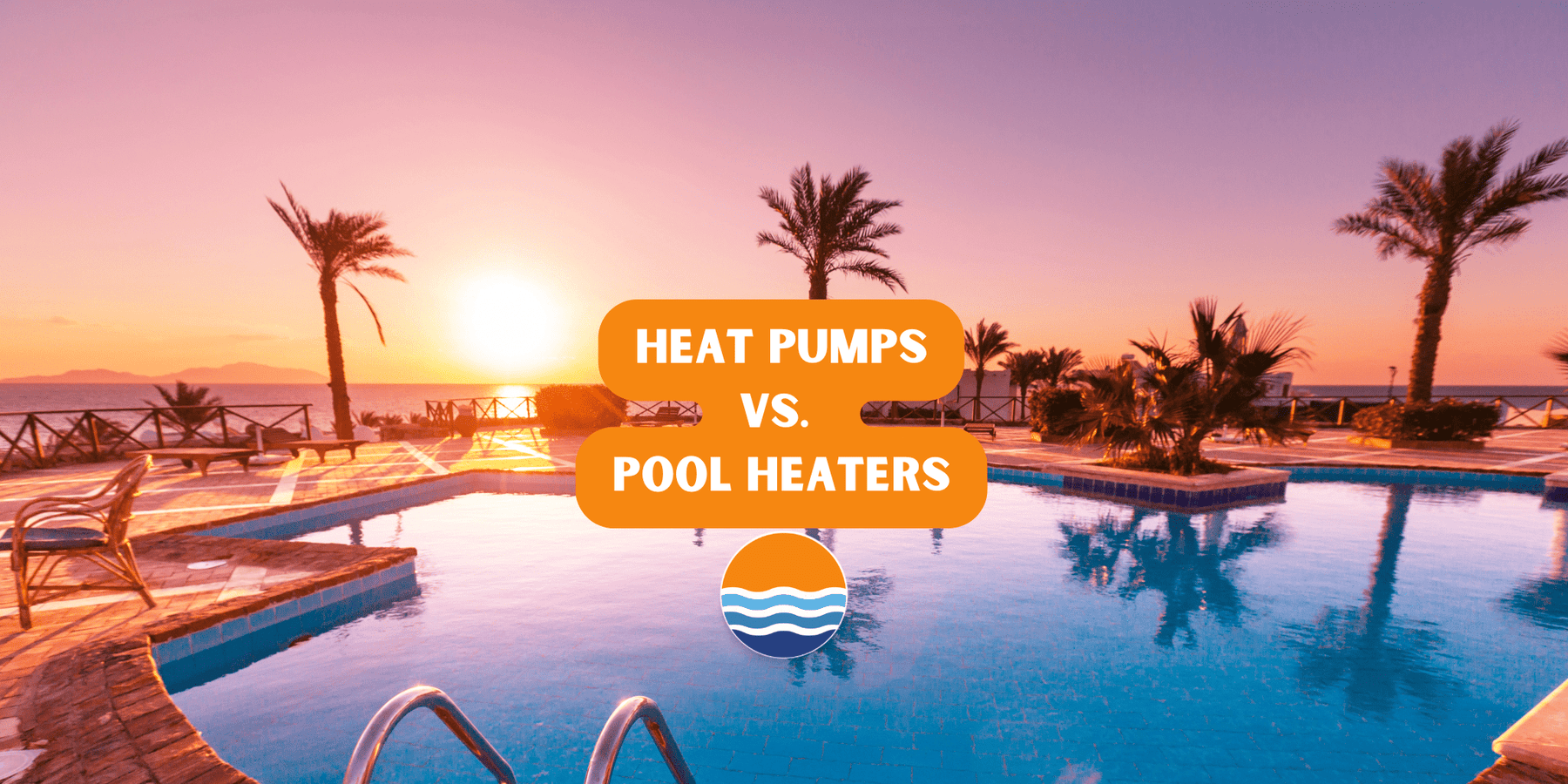
Pool Heaters vs Heat Pumps: Which Is Best for Your Pool?
Understanding Pool Heaters and Heat Pumps
Short answer: Pool heaters is a catch-all term, so it can refer to any technology that heats your pool. Here, we'll talk about gas-powered pool heaters vs. heat pumps.
Heat pumps are more energy-efficient long-term, while gas-powered pool heaters are great for quick heating in colder temps. Want to swim smarter (and warmer)? Read on to find out which option fits your pool, climate, and budget.
Before choosing a pool heating system, it helps to know how each one actually works. You’ve probably seen the terms thrown around online or heard them from a neighbor who suddenly became a pool expert. But which one is right for you?
Pool Heaters
How They Work
Gas-powered pool heaters burn fuel - which use natural gas or propane - to create heat. That heat moves through coils or a heat exchanger where it warms the pool water as it flows through. The result? Fast, powerful heating.
You can flip the switch in the morning and be swimming by afternoon. It’s like having a hot shower for your entire pool.
Advantages
-
Heats up quickly. Great if you want to swim on short notice or only heat your pool occasionally.
-
Works well in any weather. Cold air doesn’t slow it down.
-
Simple to operate. Turn it on, set your temp, and go.
This makes gas pool heaters ideal for weekend swimmers or folks in cooler climates who just want their water warm when it counts.
Disadvantages
-
Fuel costs add up. The more you use it, the more you spend on gas or propane.
-
Not the most eco-friendly. Burning fuel means emissions.
-
Shorter lifespan. Expect around 5-7 years with regular maintenance.
If you’re heating your pool a lot, it might start to feel like you’re throwing dollars straight into the deep end.
Heat Pumps
How They Work
Heat pumps use electricity to pull warmth from the air and transfer it into your pool water. They don’t make heat - they just move it. That makes them very efficient, especially in warmer climates.
Think of it like a big outdoor heater that’s really good at recycling.
Advantages
-
Lower running costs. Uses less energy, which means lower bills over time.
-
Environmentally friendly. No fuel, fewer emissions.
-
Longer lifespan. Many models last 10-15 years or more.
If you’re someone who swims often or wants to keep the pool heated regularly, a heat pump can be a smart long-term choice.
Disadvantages
-
Slower to heat. Don’t expect to warm your pool on short notice.
-
Depends on the air temperature. The colder it is outside, the less efficient it becomes.
-
Higher upfront price. Can cost more at the start than a traditional heater.
Still, for pool owners in mild or warm climates, the savings usually catch up fast.
Making the Right Choice: Key Comparisons
Picking between these two isn’t just about the price tag. It’s about how you use your pool, what kind of weather you deal with, and how often you want warm water.
Let’s compare the things that matter most.
Cost Analysis: Upfront vs. Operating
-
A basic gas or propane heater typically costs less up front.
-
Heat pumps, on the other hand, usually cost more to buy and install.
But here’s the thing:
If you use your pool a lot, a heat pump might save you more money in the long run. It’s like comparing a gas-guzzler to a hybrid car. Sure, the hybrid costs more at the dealership, but it makes up for it at the gas pump.
Gas heaters burn through fuel quickly. Heat pumps just sip electricity.
Performance: Heating Speed & Climate Dependency
Want to swim on a chilly Saturday morning without planning ahead? A pool heater will warm your water in a matter of hours, no problem.
But if you’re okay with steady heating over time and you live somewhere like Florida, a heat pump wins on efficiency.
Cold weather? Go with a gas or propane heater.
Warmer climate? Heat pump all the way.
A real-life example:
If you're a weekend warrior with a mountain cabin pool, go heater. If you're in the Southwest and swim five days a week, heat pump.
Installation, Maintenance, and Lifespan
-
Installation: Both need a pro. Heat pumps may require some electrical work.
-
Maintenance: Pool heaters need more regular tune-ups due to the burners and fuel lines.
-
Lifespan: Heaters last around 5-7 years. Heat pumps can run strong for over a decade.
And when it comes to reliability, some brands make it easier than others. For example, the FibroPool FH270 pool heat pump and FibroPool FH285-i pool heater chiller are known for efficient heating and quiet performance. They’re made for above-ground or small in-ground pools, so they’re perfect for most backyard setups.
Final Word...
There’s no one-size-fits-all answer. It comes down to your climate, pool habits, and budget.
If you want fast heating in any weather and don’t mind paying more to run it, go for a gas or propane pool heater.
If you’d rather save over time and don't live in an extreme climate, a heat pump could be your best bet.
Related reading:
- Swimming Pool Temperature for Seniors: A Complete Guide to Safe and Comfortable Swimming
-
Do Pool Heaters Smell Like Gas?
-
Pool Heater Designs Uncovered: What Do Pool Heaters Look Like?
-
Are Pool Heaters Energy Efficient? A Practical Guide to Saving Heat and Money
-
Can Pool Heaters Be Electric? Exploring a Modern Heating Option



Leave a comment